Investigations
Billions, Bullets And Bravado: The Untold Story Of SportPesa
Published
5 years agoon
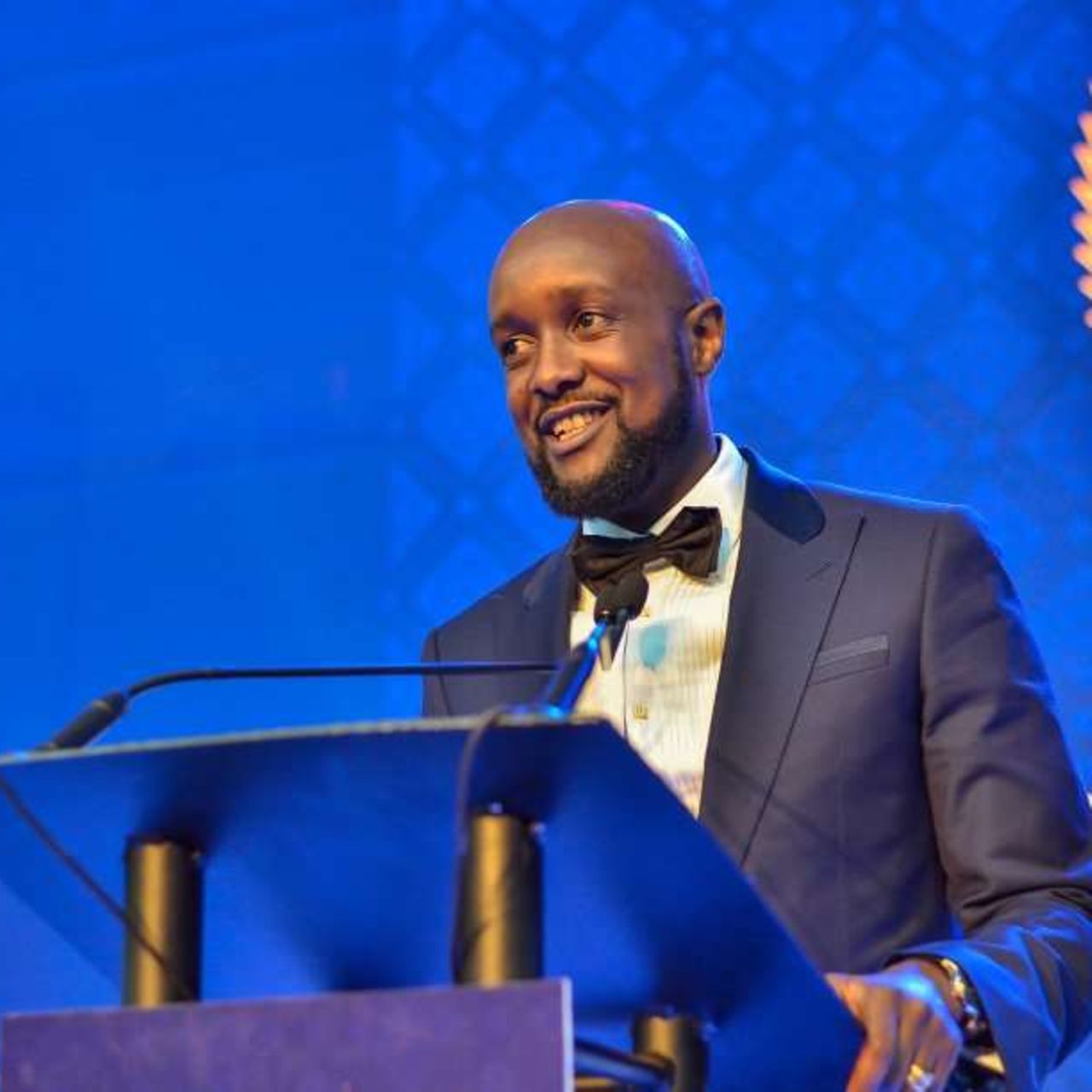
Midnight. A deserted parking lot near the Bulgaria-Serbia border. 1994. A war is on.
Fourteen Serbian lorry drivers doze in their cabs, waiting for Bulgarian customs officers to allow them and their truckloads of precious fuel to rumble across the border into war-torn Yugoslavia.
Suddenly, they are ambushed by a gang of torch-wielding assailants, hauled from their trucks, beaten, and forced to hand over wads of foreign currency at gunpoint. One of the Serbs is abducted and taken hostage after he fails to produce any cash.
It might have been just another incident involving a marauding gang in a politically and economically fragile eastern European country struggling to emerge from its Communist past, but two names caught the attention, first, of Bulgarian law enforcement and, later, the media.
One was gangland kingpin Boyan ‘The Baron’ Petrakiev, who led the attack on the Serbian lorry drivers and was sentenced for his role in it many years later. The other — allegedly present on the night of the incident, reportedly questioned and charged, but never tried, let alone convicted — was Guerassim Nikolov.
At the time, Nikolov was a 20-something croupier working in a casino in the Bulgarian capital Sofia. He would depart Bulgaria in April 2000, six years after the incident, on a short flight to Switzerland and onward to Nairobi.
Criminal charges
Eight months later, in December 2000, a Bulgarian daily newspaper reported that criminal charges in the Serbian truck driver case had been finalised and presented in court. Petrakiev was named as an accused, as was Nikolov. But, as noted by the diligent reporter who attended the court hearing that day, Nikolov was no longer in the country.
For the past two decades, Nairobi has been Nikolov’s second home and a springboard for his casino, lottery and sports betting empire. He settled here comfortably and, by 2006, had become the respectable face of the Toto 6/49 SMS lottery.
All would have been hunky-dory for him, but then out of the blues a Bulgarian investigative journalist called Slavi Angelov turned up at Jomo Kenyatta International Airport, hot on the trail of another Bulgarian businessman.
The target of Angelov’s investigation was Krasen Tenev, a former university lecturer who had fled Bulgaria after police discovered his printing business had been producing hundreds of thousands of fake excise labels used to avoid tax on imports and exports.
Angelov tracked Tenev down to Nairobi, where he was living with his family under an assumed Ukrainian identity. Having previously printed materials for Bulgaria’s state-owned Toto 6/49 lottery, Angelov discovered that Tenev was now a business partner with Nikolov in the Kenyan version of the firm.
Prior to Angelov’s fact-finding trip to Nairobi, Tenev had been found guilty of five counts of forgery and sentenced in absentia. Angelov would later publish an investigative series in five parts about Tenev and Nikolov’s respective backgrounds. The story, published in Bulgarian and unavailable online, is rich in factual detail. It also gives the impression that Angelov had excellent contacts in Bulgarian law enforcement.

Guerassim Nikolov.He is one of the founders of betting company SportPesa.
Photo credit: Pool
Tenev would quietly go to ground again around this time, and he is still a wanted man on Interpol’s Red Notice watchlist.
By contrast, Nikolov’s fortunes grew exponentially. After moving to Nairobi in 1999, Nikolov worked as General Manager at the Grand Regency Casino for more than three years before becoming Managing Director and founder of First Lotto Ltd in 2001.
First Lotto got its first gaming licence in Kenya to run Toto 6/49, an SMS lottery that was already very popular in Bulgaria, in 2002. The firm launched its operations in Nairobi a year later, months before the Bulgarian police found the counterfeit materials in Tenev’s printing warehouses.
As Nikolov’s lottery was settling on the streets of Nairobi, Bulgarian police were completing their investigations and were finally ready to take the 1994 kidnapping and extortion case to trial in Bulgaria. It was around that time that Tenev landed in Nairobi, travelling on a fake Ukrainian passport as ‘Fyodor Koval’. He was found living with his family in a luxury golf course development under his Ukrainian alias, and was also a partner with Nikolov in the Toto 6/49 lottery and casino business.
In January 2006, Bulgarian police investigating credit card skimming syndicate also traced Boyan ‘The Baron’ Petrakiev and a young associate, Hristo Barbanov, to Nairobi after the pair bought return air tickets from Sofia on British Airways using a cloned credit card.
Shortly after they arrived in Kenya, Bulgarian police arrested Petrakiev, Barbanov and several others and charged them in connection with the credit card cloning scam. They would soon all be released on bail.
In June, Tenev, who is still on the Interpol Red List, was found guilty on five counts of forgery, including the reproduction of more than 1.3 million fake excise stamps used on alcohol products. He is sentenced in absentia to 11 years in prison.
It was after the Angelov expose that it started emerging that the Bulgarians may not have been the people they said they were. Several former employees of First Lotto Limited also said in the expose that they had had to return home to Bulgaria because of unpaid wages.
Extortion case
In March 2009, with the statute of limitations set to expire for the 1994 kidnapping and extortion case, and following a public outcry, prosecutors finally secured a deal. Petrakiev was sentenced to three years and seven months for the kidnappings, but he had already served the sentence period in pre-trial detention. Charges against the other co-accused were dropped.
In July, Petrakiev, Varbanov and their accomplices were convicted for credit card forgery after a three-year investigation during which they spent much of the time in detention or under house arrest.
After the prosecution secured a plea bargain with the accused, Petrakiev got a four-year sentence and Varbanov a two-year term, suspended for five years. Meanwhile, in Nairobi, First Lotto Ltd and Toto 6/49 were closing down, having run up large debts in 2011.
A decade after showing up in Nairobi, the Bulgarian team had settled in just fine and were ready for their second, and perhaps most important, gamble; SportPesa. And so, in 2012, Pevans East Africa registered the SportPesa trademark in Kenya. Two years later, in February 2014, SportPesa was launched to a roaring success.
At the launch ceremony was Bulgarian Slavi Binev, an alleged former organised crime group leader who praised Nikolov and business partner Gene Grand as “old friends”.
A year later, in June, SportPesa Holdings Limited was incorporated offshore, in the Isle of Man. Petrakiev then emerged and granted an interview to Buzzfeed, saying he now lives in Spain and has “casino interests in Kenya”. He said he was also a partner in an arms dealership, contracted by the US government to send small arms to rebel groups fighting in the Syrian civil war.
Dubious characters
While Nikolov may have had a brush with the law and appears to have crossed paths with some dubious characters, he has not been found guilty of any crimes anywhere in the world that the Sunday Nation could independently verify. Most importantly, he is one of four Bulgarians who have been key to the meteoric rise and equally spectacular crash of betting giant SportPesa.
Family affair and the Dick Wathika connection
If SportPesa were a puppet, Nikolov would be its master; the man behind the velvety curtains, the unseen hand pulling the strings, directing the orchestra. Those who have worked closely with him describe him as a flamboyant, charming but ruthless businessman. An interior designer by training, he speaks Russian, Bulgarian and heavily accented English.
The second major actor at SportPesa is Gene Grand, often referred to as an American businessman. Grand is a close business associate of Nikolov’s. Some say they go back years together to the same high school in Sofia.
Grand is Bulgarian-born and was christened Evgueny Krantov. Years later he obtained US citizenship and a new name, seemingly tailored to his growing business ambitions.
Whereas Nikolov is the bold and brash one, people describe Grand as the softer and more empathetic partner. A former cabin crew attendant, Grand is said to love private parties. His business acumen, others say, is razor-sharp.
Two more Bulgarians complete the picture, and they are Nikolov and Grand’s sisters. Valentina ‘Valya’ Mineva first receives a passing mention in investigative journalist Angelov’s story, as a former employee of the Bulgarian state-owned lotto who helped Nikolov, her brother, to run Toto 6/49 in Kenya. She is the systems expert behind all of Nikolov’s lottery and betting innovations.
Kalina Karadzhova, nee Krantova, is the equally savvy sister of Grand, who runs the financial side of SportPesa’s Isle of Man and UK-based businesses. Together, the four Bulgarians control just under 50 per cent of the company’s shareholding in Kenya, the Isle of Man and the UK.
Mineva also wholly owns two other companies based offshore in tax havens that orbit SportPesa and have received billions of shillings either directly or indirectly from Pevans for various IT, software and payments services.
SportPesa is in many ways a family-run business. Indeed, the Nikolov and Krantov families are distantly related through marriage. But despite the combined skills and experience of the Bulgarians, SportPesa might never have got off the ground were it not for its deep-pocketed Nairobi shareholders.
The late Nairobi Mayor Dick Wathika opened the doors for Nikolov and Grand’s lottery and casinos to thrive in the Kenyan capital. One incident in early 2005, reported in the media at the time, is instructive.
Street protests
Hundreds of lottery ticket sellers for Kenya Charity Sweepstake woke up one morning to find that their kiosks, their source of livelihoods, had been demolished by the Nairobi City Council, on the directions of then-mayor Wathika.
But they did not take the demolition lying down. The ticket sellers staged street protests against the city’s “clean-up exercise”, and complained bitterly to the media that their vacated spots were now occupied by booths owned by Nikolov’s Toto 6/49 lottery.
In the years since, Wathika was occasionally spotted in Nairobi hotels in the company of the Bulgarian businessmen, whom he told anyone who cared to ask that they were business partners.
According to one source, Wathika was the financially stable one who bailed the Bulgarians out on more than one occasion when unpaid debts and the odd unexpected player jackpot threatened to cripple their gambling businesses. He later ended up being a major shareholder and founding chairman of SportPesa, which launched in Nairobi in 2014.

SportPesa Racing Point’s drivers Lance Stroll (left) and Sergio Perez stand alongside the newly unveiled Formula One livery during the unveiling at the 2019 Canadian International Autoshow, on February 13, 2019. SportPesa Racing Point F1 Team was formerly known as Force India.
Photo credit: File
It was Wathika who invited Nairobi billionaire and businessman Paul Ndung’u, a former accountant who had made his fortune as a Safaricom dealer, to invest in SportPesa.
In its early days, SportPesa required an injection of capital to boost its marketing efforts so that it could propel itself into the big leagues. That’s when the entrepreneurial Ndung’u, who knew very little about betting but recognised a promising business prospect when he saw one, bought a chunk of equity in the firm.
Relations between Wathika and his Bulgarian business bedfellows soured in 2015, and the former mayor and MP-turned-SportPesa-chairman confided in friends that he felt he was being sidelined from company decision making. He died of suspected cardiac arrest that December, shortly after attending a business meeting with the Bulgarians at their Finix Casino in Hurlingham to thrash out their differences. Wathika’s widow, Asenath Wacera, inherited his stake in the business while Ndung’u became chairman.
That was long before the billions really started flowing in. Then fame. And then a little arrogance. Quickly, the temptation to play fast and loose with tax payments to Kenya Revenue Authority crept in, amidst increased cash outflows out of Nairobi to companies based in tax havens such as the Canary Islands, Isle of Man and Dubai.
In 2016 SportPesa set up shop south of the border in Tanzania. The following year it made it to South Africa. It also went into partnership deals with Arsenal and Southampton FC, and a shirt sponsorship deal with Hull City. The icing on the cake was setting up a UK holding company in 2017, and an IT services company based in the iconic Liver Building in Liverpool, the corporate headquarters of Everton FC.
In May 2017, it signed a shirt sponsorship deal with Everton worth a reported Sh1.4 billion (£9.6m) a year; and moved into their new “global headquarters” on the city’s Mersey waterfront. That financial year, SportPesa pulled in bets from Kenyans of around Sh110 billion ($1.1bn). Several months later, it was caught over a Sh15 billion tax bill as its shareholders got entangled in a bitter boardroom feud.
The billions, cash outflows and offshore transactions
By 2018, Pevans East Africa Limited, the firm that operated the SportPesa brand before it was recently transferred to Milestones Games Limited, was on its way to hit the Sh150 billion revenue mark. It was another historic year as its accountants retreated to crunch its full-year numbers. But 2018 was also the last full financial year before the Kenya government shut SportPesa down.
A Sunday Nation analysis of its financial statements now gives a rare peek into the huge cash outflows from Kenya that perhaps attracted the attention of financial experts.
As the accountants worked the numbers, one thing became certain; the betting machine at SportPesa had delivered another wonderful set of results. In that year alone, punters were placing bets of about Sh12.4 billion on average every month, or about Sh400 million daily.

Everton’s Nathan Broadhead during a SportPesa Cup Friendly match between English Premier league side Everton FC and Kariobangi Sharks on July 7, 2019 at Moi International Sports Centre, Kasarani.
Photo credit: Chris Omollo | Nation Media Group
The total bets received that year added up to Sh149.7 billion ($1.47billion), using the prevailing dollar exchange rate of Sh101 at the time. From this amount, the accountants took away Sh129.6illion ($1.27b) to account for what it paid punters who got lucky. This left the company with a gross gaming revenue of Sh20.1 billion ($197 million) on its books. Gross gaming revenue refers to the total value of bets placed by punters in a particular period minus the payouts after the winnings.
The tax bill for that year was Sh4.9 billion (US$48million), which placed it in the league of some of the top taxpayers in Kenya.
After factoring in the tax payable, the accountants were left with an operating reserve of Sh15.2 billion ($149m), from which other operating costs were to be paid.
At this time, the accountants should have realised what would have worried any external auditor and kept them on the edge. Despite the significant growth in revenues that were now almost grossing Sh150 billion, SportPesa’s reported profit margins were dropping significantly and its tax bill was not proportionately different from when it was making revenues of less than Sh50 billion.
This should worry any tax accountant and raise an internal audit query at the very least. But if it worried the team at SportPesa, it never came to the limelight.
However, it is how these billions were flowing out of the company to firms owned or controlled by its directors abroad that caught the attention of the Kenyan financial systems.
Out of the Sh15.2 billion profits, one-third, or Sh5.3 billion ($52m), was paid to related parties, including Tech Pitch Limited, a Kenyan company, SPS SportSoft Ltd (UK), and Kentech SL (Canary Islands).
After Tech Pitch received its cash, it paid Sh1 billion ($9,8m) to a Dubai-based firm, Peg B Technology FZE, for ‘payment processing fees”. This formed the lion’s share of Tech Pitch’s Sh1.4 billion ($13.7 million) reported operating costs for 2018, the year under review.
Of the Sh5.3 billion paid offshore, one-third, or Sh1.4 billion, was paid to Kentech and Peg B Technology, which appear to be wholly owned by a single director and shareholder of SportPesa, Ms Valentina Mineva. Ms Mineva, just to remind you, is a sister of Nikolov, the founder and director of SportPesa.
Both Mineva and Nikolov appear to have received generous personal benefits in the form of salaries and other perks from these outflows. For instance, in the year under review, Tech Pitch appears to have paid Nikolov a director’s remuneration package of Sh196 million ($1.9m) despite the company’s entire wage bill being booked as Sh19.4 million ($190,000).
The Sunday Nation wrote to SportPesa, and to each of these directors directly, asking them to explain these cash movements and whether they were above board, and whether due taxes were paid. The SportPesa office in Nairobi acknowledged receipt of the questions but refused to take its right of reply. It also did not respond to our question on whether it needed more time to file its response. Its foreign directors Nikolov, Grand, Mineva and Kalina Karadzhova also did not respond to our enquiries.
We then asked SportPesa Global to respond to our findings and various allegations made by one of its directors and shareholders, Paul Ndung’u, among them the large cash outflows, tax issues, and if they were being investigated by the UK’s Serious Fraud Office.
We also asked SportPesa Global to explain the reasons behind the current boardroom feud, the rushed capital call, refusal to hold board meetings, as well as the reason various reputable auditors had left the firm in a huff.
Matt Day, a SportPesa spokesperson based in the UK, said “SportPesa is fully compliant with all legal and tax requirements in the jurisdictions” in which it operates.
“We are not aware of any investigation by the United Kingdom Serious Fraud Office into SportPesa. Equally, Pevans East Africa has not transferred any such funds to offshore accounts,” Day told the Sunday Nation.
He added that all SportPesa brand actions have always been done with the knowledge and explicit approval of the board members of all companies involved and in compliance with company by-laws and local regulatory guidance.
“SportPesa,” he said, “has ongoing and regular working arrangements with large auditing and tax advisory companies and any changes in the past to these relationships have been driven purely by commercial reasons.”
Day, however, refused to respond to several other questions on grounds that some were defamatory.
In the UK and Isle of Man companies, director Kalina Karadzhova appears to issue many of the companies’ directives and resolutions. One of the most recent, and perhaps the most significant yet, is the granting to Milestones Games, in September 2020, of a five-year non-exclusive right to use the SportPesa trademark.
Karadzhova is sister to another significant SportPesa shareholder, Gene Grand, also known as Evgueny Krantov.
Until recently, these foreign directors owned 46 per cent of Pevans, 48 per cent of SportPesa Holdings Isle of Man, 47 per cent of SportPesa Global Holdings UK, and 100 per cent of in Kentech and Peg B.
The grand fallout and fight for the soul of a betting empire
On September 14, 2020 a letter landed at the Kenya Industrial Property Institute at 1.50pm. It bore the signatures of SportPesa chief executive Ronald Karauri and company secretary Robert Macharia — a fellow director and shareholder in the company — and informed the recipient that Pevans East Africa Limited had agreed to transfer the Sportpesa brand from Kenya to its UK-based holding company, Sportpesa Global Holdings Limited.
The deed of assignment executed by SportPesa Global was completed on September 15, 2020. Kalina Karadzohova signed on behalf of SportPesa Global while her husband, Nikolay Karadzhova, witnessed it from their apartment in the Isle of Man.
To anyone who had not been following the SportPesa story, there was nothing sinister in this move. Nothing to raise the alarm.Or temperatures.
To the corporate geniuses at SportPesa, this was child’s play. It was not the first time they were doing it, so it should have been a simple and brilliant plan for the firm, which had spent 15 long and cold months without any revenues in Kenya after the government withdrew its betting licence last July.
All its directors had to do was find another company that would obtain a betting licence and then acquire almost all shares in the entity as soon as the paperwork was in the bag.
Now, with full control, they would transfer its trademark, which is now one of SportPesa’s most precious assets, to this new entity for a song, in a transaction akin to moving your wallet from your left to the right hand.
That company turned out to be Milestones Games Limited. The plan went well… until Kenya’s betting regulator realised something was amiss.
The transfer of the brand to SportPesa Global for just Sh14 million also opened a new battlefront for the firm’s directors, with Ndung’u accusing his Bulgarian partners of going behind his back to make such decisions and plotting to dilute his shareholding in the company in order to weaken him. But the hottest fire was burning at Milestones, where the original owners were being fried by the Kenyan government for allowing SportPesa, the brand, to sneak in through their doors. On Thursday this week that plan ran into headwinds after the Betting Control and Licensing Board revoked Milestoness operating licence. A court suspended that decision pending determination of a case filed by SportPesa.
Before the drama on Thursday, SportPesa had been in operation for a few days courtesy of another court order that allowed it to use Milestones’ licence.
Interior Cabinet Secretary Fred Matiang’i said the government was not going back down on its decision to withdraw the licence.
“Kenyans can rest assured on this matter,” said Dr Matiang’i, breathing his usual fire. “We are not going to allow criminals, money launderers and all manner of shadowy characters to do all these funny things in our country.”
The decision to cancel Milestones’ licence was made after the betting regulator came face to face with the reality that the firm was just Pevans East Africa in disguise, and without the baggage of the Sh15 billion tax liability to Kenya Revenue Authority.
The Sunday Nation spent the last three weeks peeling off the layers of ownership of the new firm, and in the end discovered just how easily SportPesa had manoeuvred the landmines placed before it by Dr Matiang’i and the technocrats at the Interior ministry to get back to the betting game through the backdoor.
After realising that it would be difficult to come back through Pevans East Africa Limited, the directors called the meeting that agreed to transfer the SportPesa brand from Kenya to its UK-based holding company, SportPesa Global.
One of the documents used to effect the trademark transfer, a Form TM 14 lodged with the Kenya Registry of Trademarks in mid-September, lists SportPesa Global’s trade or business address as First Floor, Jubilee Building, Victoria Street, Douglas, Isle of Man 1M1 2HS in the United Kingdom.
The directors of SportPesa Global are listed as Kalina Karadzhova (non-shareholder), Ivalyo Bozoukov (one per cent shareholder) and Paul Wanderi Ndung’u (17 per cent shareholder).
Three weeks after the letter to Kenya Industrial Properties Institute noting transfer of the SportPesa brand, Kenya’s betting regulator awarded a licence to Milestones Games Limited on October 6, 2020. Twenty days later, on October 26, 2020, SportPesa Global granted a non-exclusive licence to Milestone Games Limited to use the SportPesa trademark.
Company ownership records show that Karauri and another Pevans shareholder, Francis Kiarie, had assumed almost total control of Milestones Games’ shareholding via a company they co-own that was only incorporated on October 4, 2020.
Four days after SportPesa Global allowed Milestones to use the brand name, Karauri fired his now infamous tweet, declaring that SportPesa was finally back in business.
The betting licensing board had been walloped at its own game, and it immediately wrote to Milestones, accusing it of obtaining its license under one set of owners only to later transfer its shareholding to another entity, thereby circumventing its due diligence requirements on betting company ownership.
The board threatened to withdraw the license for a second time despite a court decision okaying the use of the brand name by Milestones.
When Milestones applied for its bookmaker’s license, its shareholders were Nob Five Limited (9,950 shares) and Wilson Ngatia Karungaru (50 shares). At the time, Nob Five Limited was owned by John Munene Nderitu (250 shares), Jackline Nyambura Kung’u (500 shares), and Joseph Muendo Mutua (250 shares). James Muigai Ngengi, a nephew of President Uhuru Kenyatta, was the addressee in correspondence between Milestones and the regulator.
But immediately it got the licence, a new company — Selenium Limited — emerged on its shareholders roll. Selenium Limited is owned by Karauri, alongside Francis Waweru Kiarie, another Pevans shareholder. Effectively, SportPesa would not have needed to change anything to get back to the game. Not even its CEO, office address, or gaming and payment infrastructure.
But why would Pevans do this? Why would it so willingly sell its biggest brand, the SportPesa name, to Milestones? It is hard to answer that question without insider information. What we know, however, is that SportPesa was coming back into the market clean, without the huge tax liability to KRA and minus the heavy cloud of money laundering allegations that was hanging over the head of Pevans.
Kenya Insights allows guest blogging, if you want to be published on Kenya’s most authoritative and accurate blog, have an expose, news TIPS, story angles, human interest stories, drop us an email on [email protected] or via Telegram
📩 Got a Tip, Story, or Inquiry? We’re always listening. Whether you have a news tip, press release, advertising inquiry, or you’re interested in sponsored content, reach out to us! 📬 Email us at: [email protected] Your story could be the next big headline.

You may like

Hackers Infiltrate Judiciary’s Digital System, Locking Out Staff and Disrupting Cases

Fuel Prices Soar As EPRA Announces Sharp Increases in July Review

French First Lady Brigitte Macron Appeals in Case Against Two Women Who Claim She Used To Be a Man

CMA Ordered to Pay Sh7.5 Million After Damaging Report Costs Investment Executive Prime Job

Youth Business Leader Charged in Sh38 Million Gold Fraud Scheme

Judiciary E-Filing Hit With Massive Malfunction Users Directed to Email

Ghislaine Maxwell Ready to Reveal ‘Truth’ About Epstein Client List

Will The World End on Aug 2? Prophet Owuor Responds To Viral Doomsday Report

The Day I Said Toka Nje and He Stood in a Towel Crying as I Took Back My Peace and Sanity

MUNDIA KAMAU: William Ruto Is Not The Only Unpopular President That Kenya Has Had

From Billionaire to Broke: The Fall of Humphrey Kariuki’s Empire

How NCBA Software Engineer Opened Floodgates For Mobile Banking System Fraud

Investigation Exposes Alleged Sex Crimes at Alliance Girls High School Amid Institutional Cover-Up

EXCLUSIVE: How Corruption and Mismanagement Have Brought Kenyatta National Hospital to Its Knees

Housing PS Charles Hinga Entangled in Sh 2B Tender Scam

Inside the Kibaki Estate Dispute: Power, Bloodlines & the Unfolding Legal Drama

Former PS Warns of Hidden Hand Behind Mwaura’s Sh1.6B HF Group Acquisition, Predicts Delisting

Police Officer Who Shot Mask Hawker During Protests Arrested

Court Ruling Leaves Agnes Kagure Exposed in Sh600M Land Fraud Targeting Foreigners

How Deep is DIG Lagat in The Kenyan Deep State?
Most Popular
-

 Investigations1 week ago
Investigations1 week agoInvestigation Exposes Alleged Sex Crimes at Alliance Girls High School Amid Institutional Cover-Up
-
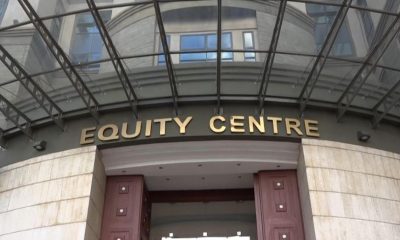
 Business16 hours ago
Business16 hours agoInside Equity Bank’s Sh1.5 Billion Heist: A Web of Deception and Cover-Up
-

 Business7 days ago
Business7 days agoCourt Freezes Kenya’s Afriswiss Commodities Bank Account in Alleged Gold Fraud
-
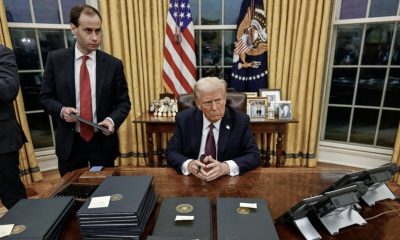
 Americas1 week ago
Americas1 week agoHow A Nigerian Yahoo Boy’s Elaborate Plan to Scam Trump Backfired As FBI Goes After Him
-

 News1 week ago
News1 week agoIrony of Lydia Mathia Seeking Court Interventions Months After Calling Court Orders ‘Mere Papers’ While Spearheading Evictions
-
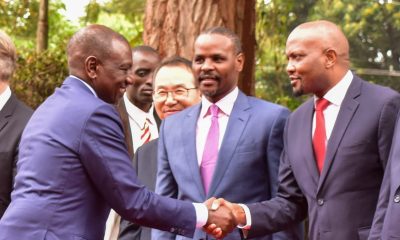
 Politics6 days ago
Politics6 days agoMoses Kuria Resigns from Kenya Kwanza Government
-

 News2 weeks ago
News2 weeks agoOutrage as Kenya Agrees to Buy Defence Equipment From UK in Ksh12.5 Billion Deal
-
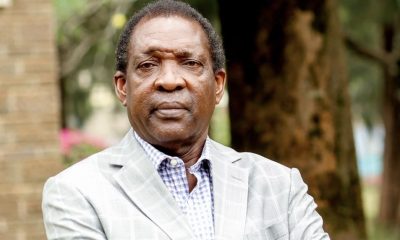
 Business1 week ago
Business1 week agoProf. Herman Manyora Appointed as The Nairobi Hospital Chair